










by Brian Clark, Chief Executive Officer
Pharmacy professionals across South Carolina are facing a stark reality: if we do not engage in advocacy, we risk losing control of our profession. The rules that govern pharmacy practice are being shaped every day—by legislators, regulators, and corporate interests. If you stand on the sidelines, waiting for someone else to define the future of pharmacy, you can bet that their vision will not align with yours. It is time for every pharmacist, technician, and student to find their voice and get involved.
SCPhA is the only membership-based organization representing all pharmacy professionals in South Carolina, across every practice setting and specialty. We fight for you in the legislature, represent you at the Board of Pharmacy, and are present in conversations where decisions about our profession are being made. But we cannot do it alone. We need engaged members who recognize that advocacy is not just for elected leaders, it is for every single person working in pharmacy today.
SCPhA’s Board of Directors recently updated our legislative priorities to ensure we are tackling the most pressing issues facing pharmacy professionals in our state:
• Pharmacist Right to Refuse – Protecting the right of pharmacists to refuse to fill or refill prescriptions based on professional judgment.
• PBM Reform – Continuing the fight against abusive pharmacy benefit manager (PBM) practices that are driving up costs and driving pharmacies out of business.
• Collaborative Practice Agreements – Developing the ability of pharmacists to collaborate with prescribers to improve patient care.
340B Pricing Discrimination – Preventing discriminatory practices that harm pharmacies serving vulnerable populations.
These issues directly impact your ability to practice and your patients’ ability to access affordable, high-quality care. If we do not act, we leave these critical decisions in the hands of those who do not have pharmacists' or patients' best interests in mind.
SCPhA is most often recognized for its work in the political arena. We invest considerable time building relationships with legislators and legislative candidates at both the state and federal levels. Our association is frequently called to testify before committees of the South Carolina General Assembly to provide insight into how proposed legislation may impact pharmacy professionals and the patients they serve.
Because pharmacy is regulated primarily at the state level, maintaining strong legislative relationships is essential to advancing and protecting the profession within the political process. SCPhA actively lobbies for policies that support pharmacy practice while opposing measures that may negatively impact the profession.
One of the most significant threats to pharmacy today is the unchecked power of PBMs. These middlemen dictate drug prices, determine which medications are covered, and manipulate reimbursement rates—all while operating in neartotal secrecy. PBMs were supposed to reduce drug costs, yet they have become some of the biggest profit drivers in the healthcare system.
Pharmacy

professionals across South Carolina are facing a
stark reality: if we do not engage in advocacy, we risk losing control of our profession.
Nationwide, the three largest PBMs—owned by massive insurance companies—control 80% of the market and generated nearly $925 billion in revenue in 2023. Their practices are crippling pharmacies, forcing many to fill prescriptions at a loss. In South Carolina, many of our pharmacies serve as primary healthcare providers in rural and underserved areas. If we allow PBMs to continue their exploitative practices unchecked, these communities will be left without access to essential healthcare services.
Every South Carolina pharmacy professional must take an active role in shaping the future of our profession. That means:
• Joining SCPhA – If you are not yet a member, now is the time. Find your voice. Amplify our efforts! If you know a colleague who is not, encourage them to join. Strength in numbers gives us power in the legislature. Together we are #OneVoice.
• Contacting Your Legislators – Make your voice heard. Your elected officials need to know how PBM abuse, reimbursement cuts, and restrictive regulations are affecting your patients and your practice.
• Getting Involved – Attend SCPhA events, join our advocacy initiatives, and stay informed on legislative developments. Our profession cannot afford to be splintered. We must stand together, fight for our rights, and ensure that pharmacy remains a profession led by pharmacists—not by corporate middlemen. Get into politics or get out of pharmacy. The choice is yours.

BrianClark,BSPharm,R.Ph. ChiefExecutiveOfficer,SCPharmacyAssociation

MARCH 2025 | Volume 65, Issue 1
Whitney Pence, Pharm.D. President/Chairman of the Board
William Wynn, Pharm.D., R.Ph., BCMAS Treasurer
Cheryl Anderson, BS Pharm, R.Ph. Immediate Past-President
Anthony DeClue, Pharm.D., MA, BCACP Speaker, House of Delegates
Emily Russell, Pharm.D. Speaker-Elect, House of Delegates
Julie Sease, Pharm.D., FCCP, BCPS, CDCES, BCACP
Midlands Region Director
Erin Blackmon Stelling, Pharm.D., MBA
Pee Dee Region Director
Deborah Bowers, Pharm.D., R.Ph., AFMC
Upstate Region Director
Marissa Beck, Pharm.D., MBA
Lowcountry Region Director
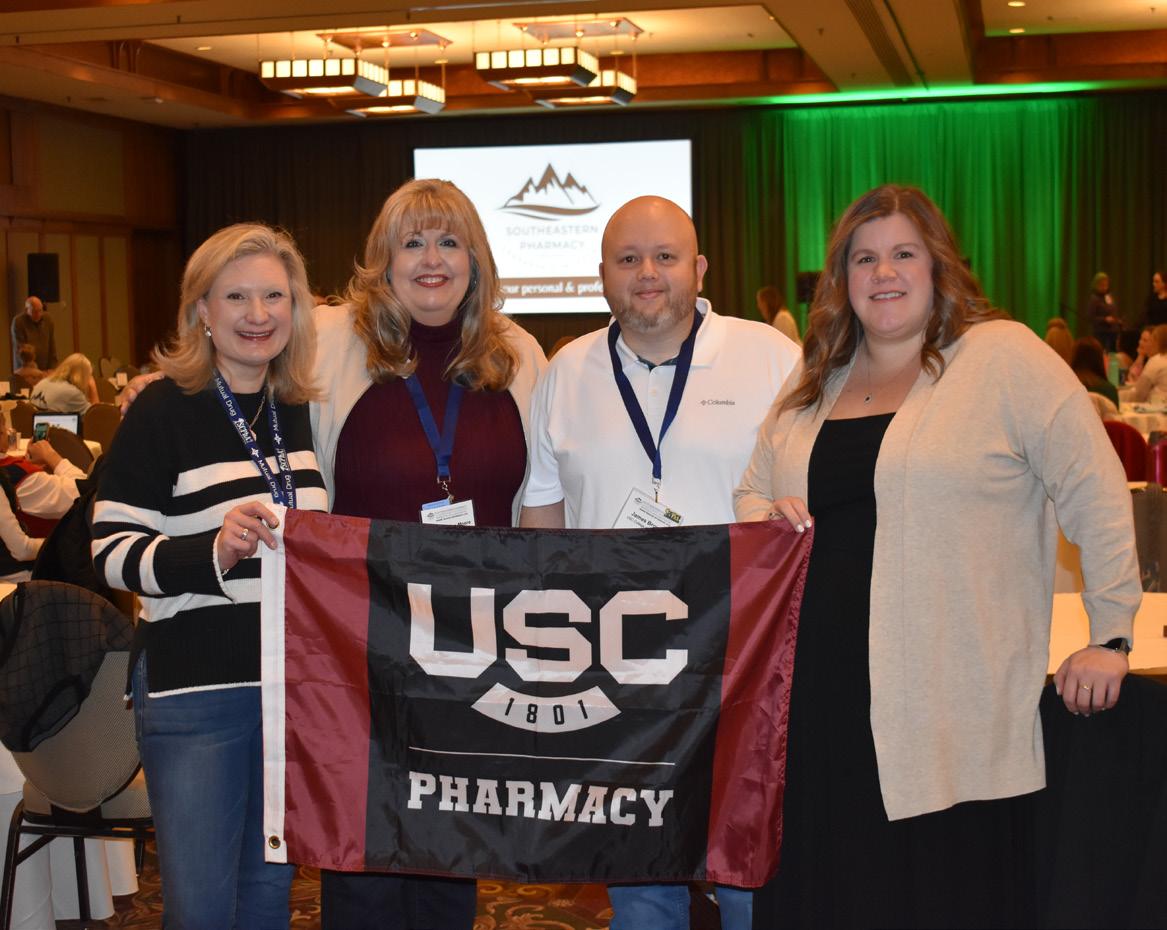





by Whitney Pence, SCPhA President
Iwanted to share a little bit of why I believe we all should be active in advocating for our profession. I joined SCPhA as a student, and thought it was great for networking, programming, and resources for those in pharmacy. But I didn't understand what it meant to be an advocate. I started attending House of Delegates meetings with a pharmacist mentor, and learned more about legislation in South Carolina and how SCPhA advocates for its members. As a new graduate, I started working as a consultant pharmacist with former presidents Jimmy Sain and Linda Reid. They added to what started during my school years, stressing the importance of associations and advocacy. Who better to learn from than past presidents of this association! I continued to stay involved, but never spoke up. I thought everyone else was doing a great job advocating for me.
Remember that you are the pharmacy expert, and the legislators are simply trying to understand the issues and what you are going through.
At a House of Delegates meeting in 2019, there was a brief discussion of the Board of Pharmacy considering extra permitting/credentialing for pharmacists working as consultant pharmacists. This could negatively impact consultant pharmacists in the state, and would be logistically difficult to implement and enforce. Why was no one was speaking up about this? Did they think this was a good idea? I decided to speak up, and shared my perspective of how this could affect us, how the wording and intent seemed out of touch with practice, and how unnecessary it would be. Through open discussion, I quickly realized that it wasn't that the leaders disagreed with me, they simply just had no idea. With my input, the consideration for additional permitting went away. It was in that moment I realized: the association is not just here for me to learn and network, the association is here to represent me and advocate for my needs. If I don't stay involved and speak up, who will do that for me?
In 2020, I joined the legislative committee to represent long-term care and consultant pharmacists. I didn't fully understand the legislative process in South Carolina, but it didn’t matter. What was needed was not a legislative expert, but someone with insight and perspective from a different practice setting. I have moved on from long-term care, and now practice in a pharmacist-run ambulatory care clinic. This experience has allowed me to better understand and advocate for a wider variety of issues. You don’t have to be part of a committee, or a delegate to House of Delegates to be an advocate. Come to events and engage in email updates. Action/Legislative Alerts are especially important because the task cannot be done by the association alone. Remember that you are the pharmacy expert, and the
legislators are simply trying to understand the issues and what you are going through. If you have a personal relationship with a legislator, let SCPhA know. Sometimes a personal connection with a particular legislator is needed to get in the door and be heard.
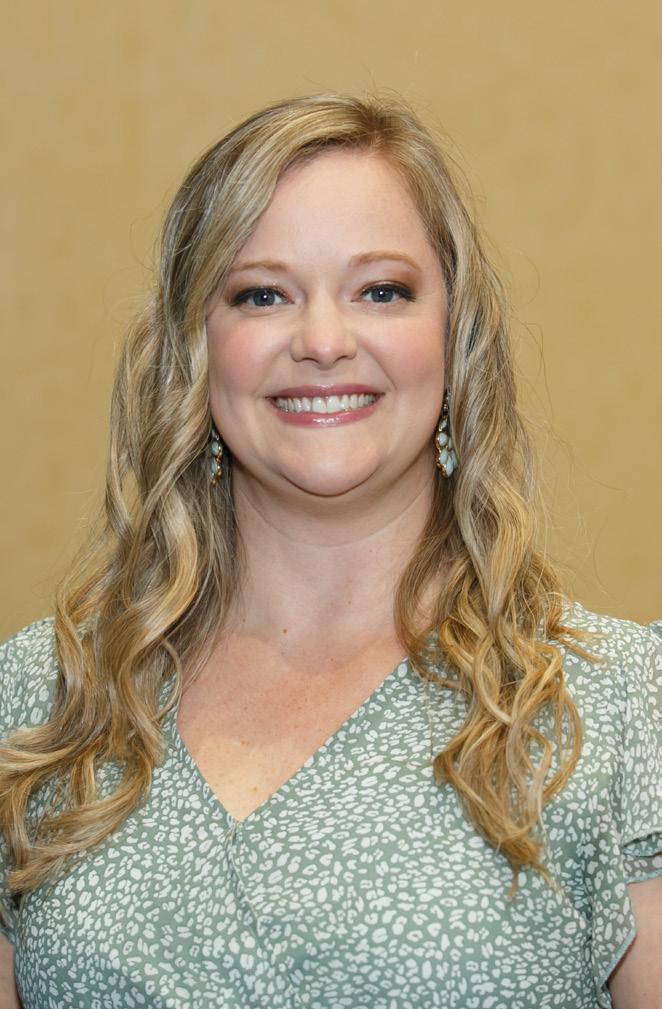
Your membership in SCPhA is more important than you know. What kind of reaction do you think the association gets at the State House with lawmakers if only representing 5% or 10% of pharmacy professionals in the state? The association carries much more weight and influence with legislators if representing a larger portion of pharmacy professionals. We all have so many different experiences, ideas, and struggles. There is a place for all of us in SCPhA: students, technicians, new graduates, seasoned and retired pharmacists, and associates/stakeholders. SCPhA is the only state association that represents all areas of pharmacy practice, and the association wants advocacy efforts to benefit members in all practice settings. I encourage you to share SCPhA with
SCPhA
is the only state association that represents all areas of pharmacy practice, and the association wants advocacy efforts to benefit members in all practice settings.
your colleagues, and inspire them to join. Attend events, join committees, run for positions, and engage with members. Take action on Action Alerts! Start building relationships with legislators, even if it is simply making phone calls or sending cards. That will allow your voice to be more powerful when the time comes to use it!
Sincerely,

WhitneyPence,PharmD. SCPhAPresident SCPharmacyAssociation


Advocacy is a calling, a responsibility, and a lifelong commitment to shaping the future. For Jennifer Baker, that journey began in childhood, surrounded by family members dedicated to community service. From an early age, the power of civic engagement and leadership was ingrained in her worldview, setting the stage for a career deeply rooted in pharmacy advocacy.
Growing up in Abbeville, South Carolina, advocacy wasn’t just something she learned about—it was something she lived. With parents and extended family members active in community organizations like the Rotary Club and garden clubs, public service was simply a way of life. A pivotal moment came in 1986 when her uncle ran for the South Carolina House of Representatives. As a young child, she witnessed firsthand the dedication required to seek public office, and it planted a seed of civic responsibility that would grow with her.
Even before fully understanding the complexities of government, she was already involved. One of her earliest memories is riding her bicycle through the neighborhood delivering flyers for Michael Dukakis’s 1988 presidential campaign. Her parents weren’t overtly political, but they instilled in her the importance of being engaged and forming her own beliefs—an approach that shaped her future as a leader and advocate.
In college, Jennifer’s passion for advocacy took a more structured form. With her uncle serving in the House of Representatives, she had the opportunity to work as a legislative aide for the House Judiciary Committee. This experience provided a firsthand look at the political process, the art of negotiation, and the power of collaboration. Later, she worked directly for a House representative, witnessing how legislators come together—often from opposing viewpoints—to find common ground.
That understanding of diplomacy and consensus-building became the foundation of her leadership approach. Recognizing the strength of unity, she saw how advocacy could drive change, especially when representing the interests of a profession like pharmacy.
After completing pharmacy school, she continued her advocacy journey by joining professional pharmacy organizations. Her firsthand exposure to the legislative process made her a strong proponent of pharmacist representation in policymaking. As patient care providers, pharmacists are often too busy to advocate for themselves, making it critical for dedicated individuals to step up and be their voice.
Working with the South Carolina Pharmacy Association, she saw the direct impact advocacy could have. Whether it was pushing for legislative changes, navigating complex policy discussions, or ensuring pharmacists had a seat at the table, Jennifer recognized that progress often required persistence, dialogue, and compromise.

Among Jennifer’s proudest accomplishments is her role in expanding pharmacists’ immunization authority in South Carolina. In 2010, she worked alongside medical professionals to craft language allowing pharmacists to administer vaccines without requiring a prescription. Though initial progress was limited to flu vaccines for adults, it marked a significant milestone. Over the years, that effort evolved, culminating in expanded immunization privileges, including the ability for pharmacy technicians to administer vaccines—a concept once met with strong resistance. Her advocacy also played a crucial role in protecting community pharmacies. In a particularly memorable moment, she testified before lawmakers against a bill that would have required written parental consent for every prescription filled for minors—an unworkable policy that could have crippled pharmacy operations. By presenting a rational, passionate argument, she helped prevent unnecessary restrictions that would have harmed patient access to care.
Pharmacists today face significant hurdles, many stemming from external control over their operations. Pharmacy Benefit Managers

(PBMs), regulatory restrictions, and pricing structures often leave pharmacists with limited autonomy. Despite their extensive training, pharmacists frequently encounter barriers that prevent them from fully utilizing their expertise to benefit patients.
Advocacy efforts focus on expanding pharmacists’ scope of practice, achieving PBM reform, and ensuring fair business practices. Pharmacy professionals must engage in legislative discussions, provide feedback to their associations, and build relationships with lawmakers to effect meaningful change. Navigating the Challenges of Advocacy:
Advocacy in the healthcare field is often a battle of patience, strategy, and resilience. For those leading the charge, these battles are not only about passing bills or achieving policy change but also about personal growth, team dynamics, and navigating difficult challenges. One leader, deeply involved in pharmacy advocacy, reflects on her journey through the many layers of this battle, from immunization protocols to legislative wins, and the lessons learned along the way.
Throughout these efforts, one piece of advice kept Jennifer grounded: Remember the 'why.' Advocacy can feel lonely at times, and she admits that there were moments when it felt as if the weight of the world was on her shoulders. "It was a surprise to me when I became president of the organization, and I felt like it was all on me," she shares. "But I learned that it's not just me. I have a team."
It's okay if you don't know your elected leaders, they still need to hear from you. Be engaged and answer the call to action. Don't be afraid.
Advocacy often involves opposing viewpoints, but it's important to remember that these conflicts are not about the people—they're about the issues at hand. One piece of advice she received that stuck with her was from a former leader within the organization: We can disagree in this room, but we should be able to walk out and have a drink afterward.
This approach emphasizes the importance of professionalism and focusing on the bigger picture, even during contentious discussions. "We don't have to be enemies," she says. "It's about the issues, not the people." This mindset is crucial, especially when dealing with the complex and often adversarial landscape of healthcare policy.
Leadership within the South Carolina Pharmacy Association (SCPhA) has also evolved. "Five years ago, I don't think we were in the position we are now," she reflects. "We’ve put the right people in the right places, and that’s been key to our success." It’s a shift from a culture where leadership was about individual responsibility to one that emphasizes the power of collaboration and collective effort.
This shift is reflected in the way SCPhA has worked to engage pharmacy students in the legislative process. By encouraging students to understand that the decisions made now will shape their future practice, SCPhA has created a stronger, more unified

voice for pharmacy professionals.
As for what every SCPhA member can do today to help advance pharmacy advocacy, the answer is simple: Be engaged and answer the call to action. Whether or not you know your elected leaders personally, it’s crucial to let them know how pharmacy issues matter to you.
“Don’t be afraid to get involved,” she urges. “Your voice matters. Answer those legislative alerts. It’s not just about knowing the ins and outs of the issues, it’s about showing up and being present.” Advocacy is not just a job for leaders or lobbyists—it’s something every pharmacist can contribute to.
Looking to the future, Jennifer is hopeful. The culture of collaboration within the SCPhA is stronger than ever, and with that unity comes the potential for even greater progress. "We’ve proven that we can make an impact," she says. "Now, we need to keep pushing forward, together."
In the end, advocacy is not just about policies or procedures—it’s about people, collaboration, and the relentless pursuit of a better future for the profession. And through this process, those who engage in the battle often find themselves growing as individuals, as leaders, and as advocates for the greater good.


Transform your pharmacy like never before with the help of RedSail Technologies:
Get the most out of your pharmacy technology with software solutions like PioneerRx, Axys, BestRx, and more.
Join a network of over 12,000 pharmacies with access to additional programs that improve health outcomes and grow your business.
Enjoy seamless and accurate claims processing with PowerLine (unaffiliated with PBMs or distributors).


Not only do we value the expertise you bring to work while wearing the lab coat — we celebrate the person underneath.





by Catey Lechner
The legislative session is now in full swing, despite a slow start. Since this is the first year of a twoyear session, most bills began in committee, leading to minimal floor debate in the early weeks. Additionally, inclement weather in Columbia further delayed committee work.
The Senate has primarily focused on revisiting the education voucher issue, which passed the General Assembly last year but was later ruled unconstitutional by the South Carolina Supreme Court. The legislation aims to provide scholarships for students to attend k-12 private schools, but the state constitution prohibits the use of public funds for private education. This year, legislators are attempting to sidestep this restriction by using lottery funds for the scholarships. Whether lottery funds qualify as public funds remains a contentious issue, likely to be challenged in court again.
Meanwhile, the House has concentrated on its version of energy reform legislation, which failed last year. South Carolina’s utility companies have urged lawmakers to address the state's growing energy crisis, citing the need for increased generation and capacity to meet rising demand. Last session, the Senate and House could not agree on a solution, but legislators hope to reach a compromise this year.
The Senate has introduced legislation to consolidate several health agencies. A third-party study recently identified South Carolina as having the most fragmented and inefficient healthcare system in the country, prompting lawmakers to make restructuring a priority. Last year, a broader healthcare consolidation bill failed on the final day of the session, with conservative lawmakers, particularly from the Freedom Caucus, expressing concerns about creating a centralized “healthcare czar.”
This year’s bill is a scaled-down version, proposing the merger of three agencies with significant population overlap: the Office of Intellectual Disabilities, the Office of Mental Health, and the Office of Substance Abuse Services. The goal is to streamline communication and improve patient care.
Initially, legislators attached provisions from the Medical Freedom Act to this bill. These provisions would have prohibited employers from requiring vaccines, set quarantine and isolation eligibility requirements, and, most notably for pharmacists, restricted their professional autonomy by limiting the circumstances under which they could refuse to fill or refill prescriptions. After testimony from the CEO of SCPhA Brian Clark, SCPhA member Ranarda Jones, and other concerned parties, lawmakers agreed to
remove this language. However, similar provisions exist in other proposed legislation and are expected to be discussed in a Senate subcommittee soon. SCPhA will continue advocating to prevent these restrictions from becoming law.
Additionally, SCPhA has successfully facilitated the introduction of pharmacy benefit manager (PBM) reform legislation. After extensive discussions with stakeholders and legislators, Senate Bill S. 342 has been introduced and is awaiting a subcommittee hearing. This bill aims to address unfair reimbursement practices and other challenges faced by pharmacists from PBMs.
SCPhA is also continuously working on legislation to reauthorize collaborative practice agreements in South Carolina. The bill is still in the drafting phase, with SCPhA engaging stakeholders such as the South Carolina Medical Association, Hospital Association, and the Board of Pharmacy to build consensus. The language has been refined, and key points of contention are being addressed.
As the session progresses, the number of bills affecting pharmacists continues to grow. SCPhA remains diligent in monitoring and influencing legislation to protect the profession and advocate for fair policies.


by Philip D. Hall, Dean of MUSC College of Pharmacy
This year began with a live-action case study on the importance of advocacy. On February 7, 2025, the National Insutitues of Health (NIH) announced it planned to cap indirect costs of funded grants at 15%. Bedlam ensued.
The American Association of Colleges of Pharmacy (AACP) joined a lawsuit filed by the Association of American Medical Colleges (AAMC) arguing that the National Insutitues of Health (NIH) would cause irreparable harm. Attorney generals from 22 states filed lawsuits to block the cuts. The scientific and medical communities voiced strong opposition, warning that research and patient care would be severely impacted.
Those in favor of the cuts argued that Facilities and Administrative costs (F&A), more commonly known as indirect costs, enabled unreasonable administrative bloat. If there is one thing both sides probably agree on, it is that hundreds of millions of dollars and thousands of jobs are at stake.
Certainly, this kind of sudden and drastic change would significantly impact the Medical University of South Carolina, which invests heavily in research into new drugs, new therapies, and new technologies that advance science. Even more certainly, few of the people watching this drama unfold understand what F&A costs are. It is probable that a number of the drama’s actors don’t either.
At MUSC, F&A costs cover a range of essential expenses that support research and other activities:
1. Facility Maintenance: Costs for maintaining and operating research facilities, including utilities, security, and janitorial services.
2. Equipment and Infrastructure: Expenses related to the upkeep of shared research equipment and infrastructure.
3. Library Services: Costs associated with providing access to scientific journals, databases, and other research resources.
4. IT Support: Expenses for maintaining and upgrading information technology systems that support research activities.
5. Administrative Support: Salaries for administrative staff who manage grants, contracts, and compliance. These costs are crucial for the smooth operation of research projects and the overall functioning of the institution.
For instance, the Zeiss LSM 880 NLO Confocal/ Multiphoton with Fast Airyscan Super-resolution Detector is a specialized microscope that includes, among many other features, an incubation chamber that regulates temperature, making it suitable for live-cell imaging. Some research couldn’t be done without it. One day, it might be the piece of equipment that enables a key step in a

The images were captured from live transgenic mouse liver cells expressing LC3-GFP. The mitochondria were labeled with TMRM, a dye sensitive to mitochondrial membrane potential. When mitochondria were damaged, they were enveloped in LC3-GFP decorated vesicles to be digested. Both images were acquired from the same area. With Airyscan super-resolution technique, an image with significantly enhanced resolution and signal-to-noise ratio was obtained. (Image courtesy of the MUSC Cell & Molecular Imaging Shared Resource)
process that turns a newly-discovered molecule into a newlydeveloped drug that helps fight childhood leukemia. Or cures alcoholism. Or slows pancreatic cancer.
MUSC has such a microscope under the watchful eye of John Lemasters, GlaxoSmithKline Distinguished Endowed Chair and professor of drug discovery & biomedical sciences. It is used by many researchers in many different disciplines, all of whom have the opportunity to advance their research because MUSC invested in one these microscopes, which can cost between $500,000 and $1,000,000. To buy – that does not even consider maintenance and replacement parts. Every research institution in the country could tell a similar story. Humans have pushed the boundaries of science so far that conducting research is an extraordinarily expensive undertaking.
When these cuts were announced, pharmacy education’s national association recognized the importance of taking immediate action to get a temporary restraining order issued, stabilizing the situation. It was a brief victory for pharmacy advocacy. The longer battle is convincing people that the life-saving and life-improving research they rely on is equally reliant on support for the institutions that conduct it.
As a member of the South Carolina Pharmacy Association, you have an opportunity to be an advocate for things that you are passionate about, such as pharmacy benefit manager reform or reimbursement policies. Let your voice be heard!

by Stephen Cutler, Dean of USC College of Pharmacy
The health care landscape is rapidly evolving, and today's student pharmacists stand at a critical crossroads. Their unique perspective on medication access, drug pricing, and patient care positions them to be powerful voices in policy discussions. As pharmacy educators, we face an urgent responsibility: preparing these future professionals not just as clinicians, but as advocates who can shape public health policy.
At the USC College of Pharmacy, we've witnessed firsthand how early engagement in advocacy transforms students into health care leaders. Our curriculum weaves advocacy throughout every year of study, from firstsemester coursework analyzing county health rankings to advanced policy discussions in upper-level courses. Students don't just learn about health disparities—they design interventions to address them. They don't simply study cultural competency—they experience it through mandatory community service that exposes them to diverse populations and real-world challenges.
The results speak for themselves. While our first-year students often express initial surprise at the extent of health disparities they encounter, by their third year, they're conducting sophisticated analyses of systemic health challenges and proposing comprehensive solutions. This evolution from observer to advocate is precisely what our profession needs.
Consider Kendall Kerr, one of our student pharmacists who will graduate in 2025. Because of her demonstrated actions to become more involved in advocacy, I selected her to represent the USC College of Pharmacy at Rx Impact Day in Washington, D.C., where she joined student pharmacists from across the nation to engage with Congress on key pharmacy issues. During her fourth-year APPE rotations, Kendall worked with both the South Carolina Pharmacy Association on a state level and the American Pharmacists Association's Executive Office on a national level, proactively seeking meetings with policymakers on Capitol Hill. Her initiative demonstrates that students can influence meaningful policy changes even before they enter practice.
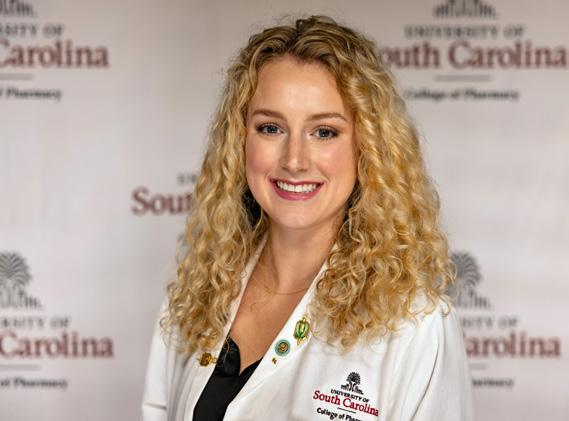
Day at the Statehouse, and filling vital roles for the SC Board of Pharmacy. Through our Walker Leadership Scholars program and our many student professional development organizations, they are discovering that their voices matter, and they can influence change at levels they never imagined possible.
This engagement in legislative advocacy isn't just about professional development; it is essential for the future of health care. Student pharmacists bring fresh perspectives to longstanding challenges in medication access, drug pricing, and patient care delivery. Their understanding of both clinical practice and emerging health care trends makes them uniquely qualified to bridge the gap between frontline care and policy development.

The pharmacy profession stands at a pivotal moment. As health care becomes increasingly complex and the demand for accessible, quality care grows, pharmacists are now expanding their role beyond traditional dispensing duties. Our students recognize this reality and are eager to help shape the policies that will define pharmacy practice for decades to come. Their involvement in legislative advocacy today helps ensure that tomorrow's health care policies reflect the full potential of pharmacy practice.
As educators and alumni, we have a responsibility to create and support these advocacy opportunities. Our role extends beyond teaching clinical skills—we must mentor these emerging leaders, support their initiatives, and demonstrate through our own actions that advocacy is an integral part of pharmacy practice. The scope of tomorrow's pharmacy practice will be determined by the groundwork we lay today.
The future of our profession depends not just on clinical excellence, but on our ability to shape policy that advances patient care and public health. When we empower student pharmacists to raise their voices in legislative sessions and policy discussions, we are not just preparing individual practitioners, we're cultivating the next generation of health care leaders who will drive our profession forward. Their advocacy journey begins in our classrooms, but its impact will be felt in health care policies and patient outcomes for years to come.
But Kendall isn't an outlier. Across our program, students are stepping into advocacy roles—serving as junior board members for professional organizations, meeting with lawmakers during SCPhA’s Legislative

by Giuseppe Gumina, Dean of PC School of Pharmacy
As pharmacists continue to expand their roles in patient care, policy, and public health, the next generation of pharmacy professionals must be equipped not only with scientific and clinical expertise, but also with the skills to advocate for their profession. Advocacy is essential because pharmacy practice is continually shaped by policy decisions that impact everything from the scope of practice to reimbursement models. Legislative victories, such as provider status recognition, expanded immunization and prescribing authority, and greater involvement in chronic disease management have been achieved through persistent advocacy efforts led by pharmacy organizations and dedicated professionals. Without such efforts, the profession risks stagnation or even regression in its ability to provide patient-centered care.
At Presbyterian College School of Pharmacy we believe that advocacy must be a fundamental component of pharmacy education. By fostering a culture of engagement in professional organizations and legislative efforts, we prepare our students to shape the future of pharmacy practice and ensure their voices are heard at the local, state, and national levels. As an essential component of this educational process, we actively encourage students to engage in professional organizations such as the American Pharmacists Association (APhA), the American Society of Health-System Pharmacists (ASHP), SC Society of HealthSystem Pharmacists (SCSHP) and the SC Pharmacy Association (SCPhA). We directly support involvement with SCPhA by providing free membership to all of our students. These organizations offer students invaluable opportunities to network, develop leadership skills, and gain

direct experience in the legislative process. Mentorship from faculty and practicing pharmacists who are engaged in advocacy can inspire students to take an active role
in shaping their profession. Through advocacy training and participation in legislative events, our students see the tangible impact of their involvement. We have witnessed firsthand how student advocacy efforts can influence legislative discussions and drive meaningful change for the profession.

The future of pharmacy depends on the voices and actions of those who will lead it. By integrating advocacy into the fabric of pharmacy education, we empower our students to take an active role in shaping policies that will define the profession for years to come. I encourage all pharmacy professionals to support and mentor students in advocacy efforts, ensuring that the next generation is prepared to champion the profession and advance patient care.



Leadership is a journey of advocacy, vision, and perseverance. In John’s tenure as President of the South Carolina Pharmacy Association, he was given the opportunity to experience working towards unifying pharmacists across all practice settings and advocating for the changes that will ultimately benefit both pharmacy professionals and the patients we serve. In the years following John’s presidency, he has taken the time to be a voice for pharmacists, grow his business, and invest in his community.
One of the biggest challenges in pharmacy is ensuring that all sectors—community, hospital, institutional, and others—are working cohesively. While it may sometimes feel as though we are pulling in different directions, a broader perspective reveals that we are all striving toward the same goal: better patient outcomes and a stronger profession. SCPhA has worked to become the central voice for all pharmacists, emphasizing collaboration and advocacy to ensure that every practice setting is heard and represented.
Understanding the different interests within our profession is crucial but so is maintaining an overarching unity. Whether it's the American Society of Health-System Pharmacists (ASHP), the American Pharmacists Association (APhA), the National Community Pharmacists Association (NCPA), or any other professional organization, each has its own focus, yet all play an essential role in shaping the future of pharmacy. By fostering a unified advocacy effort, we can drive progress in policy, regulations, and professional development, ensuring that we all move forward
together.
If there is one issue that has consistently stood out as a barrier to our profession’s success, it is the broken payment system. Pharmacy Benefit Managers (PBMs) have evolved into entities that extract enormous fees from pharmacists while adding little to no value in return. Unlike credit card processors, whose fees are regulated, PBMs operate without sufficient oversight, imposing financial strain on pharmacies and limiting patient access to essential medications. Addressing this issue is not just about sustaining independent community pharmacies—it impacts every pharmacist and, most importantly, every patient.


SCPhA's success is driven by its members. Expanding membership has always been a critical focus, as a stronger, more engaged association is better positioned to advocate effectively. John prioritized making SCPhA a welcoming and supportive home for all pharmacists, demonstrating the value of membership through advocacy efforts, professional development, and networking opportunities.
In addition to growing our membership, SCPhA has worked to cultivate meaningful relationships with key industry players. John also made it a priority to form lasting partnerships with wholesalers, software providers, and healthcare organizations like Prisma Health to ensure that we have the resources and influence needed to support our members and advance the profession. These collaborations enable us to push for changes that benefit pharmacists and patients alike.
Payment reform must be tackled at multiple levels: federal, state, and community. SCPhA has worked diligently to advocate for legislative changes that regulate PBM practices, improve reimbursement structures, and prevent pharmacy closures that would leave patients without accessible care. Fixing the payment system is not just about business—it directly affects working conditions, medication access, and healthcare efficiency across all pharmacy sectors.
John recently expanded his own business, Prosperity Drug, which has been an eye-opening experience that has reinforced his belief in the power of strong leadership and strategic planning. The pharmacy landscape today is vastly different from when he started 19 years ago, requiring constant adaptation and innovation. One of the biggest lessons John has learned is the importance of articulating processes in a way that ensures consistency across locations while maintaining a personalized, community-focused approach.

As his business has grown, John has had to consider new ways to streamline services and connect the two locations, ensuring that patients receive the same high-quality care regardless of where they interact with our pharmacy. This experience has given him a deeper appreciation for the role that independent pharmacies play in communities and the importance of investing in sustainable business practices.
Balancing pharmacy ownership with professional advocacy can be challenging, but John believes advocacy should be woven into our daily responsibilities. Just as an airport security sign reminds travelers, “If you see something, say something,” John says that we, as pharmacists, must speak up when we see issues affecting our profession. Whether it’s a reimbursement problem, an unfair PBM practice, or a regulatory challenge, staying silent only perpetuates the problem.
To John, SCPhA serves as a collective voice, but its strength depends on active engagement from all pharmacists. It is crucial to build relationships, stay informed, and participate in conversations that shape the future of pharmacy. Advocacy doesn’t have to be separate from our daily work— it should be an integral part of it.
As pharmacy students and new pharmacists navigate their careers, John believes that it is crucial to focus on personal growth outside of the workplace. One of the most rewarding ways to achieve this is by engaging with the community. Personal and professional development often go hand in hand with involvement in meaningful initiatives beyond the pharmacy setting.
When he was debating whether to take on a leadership role at the pharmacy association, he sought advice from Lynn Connelly. He told John, "John, you're going to learn a lot more than anything you put out. You're going to leave with a net gain, not a net loss, even though it's going to take time." That insight stuck with John, and he ultimately decided to step into the leadership role. John said that he was absolutely right—and what he gained from the experience far outweighed the time and effort he put in.
John’s advice to pharmacy students and new pharmacists is simple: Get involved in your community. It doesn’t have to be healthcare-related; what matters is that you engage with the world around you. Whether you serve on a board, volunteer, or support a local cause, you will gain insights and experiences that shape you into a more well-rounded professional and person. At the same time, you’ll be making your community a better place.
Looking ahead, John’s greatest hope is that his legacy in pharmacy will be one of service, both to his community and to the profession as a whole. When reflecting on the impact of his work, he doesn’t want to be remembered simply for business success—he wants to be remembered for making a meaningful difference. Whether through mentoring colleagues, improving patient care, or advocating for the profession, his goal has always been to leave things better than he found them.
Investing in our communities, advocating for fair policies, and fostering collaboration are the keys to ensuring a sustainable future for pharmacy. John hopes that, through his work, he has contributed to making our profession stronger and our communities healthier.
It's so important just to be somebody's pharmacist. Be that person that they can lean on and count on. That's what I encourage my pharmacists to do.
One of the things John has always focused on is how he can be somebody’s pharmacist. He wants to be the person his patients trust and rely on. Sometimes that comes with challenges—people will seek you out specifically, even when others around them could provide the same answer. But that trust is invaluable. Everyone has a doctor, a dentist—why shouldn’t they have a pharmacist? Be that person for your patients. Build relationships, offer support, and embrace the responsibility of being a trusted healthcare provider.
Leadership in pharmacy is about more than titles or individual achievements—it is about collective action, advocacy, and creating a lasting impact. As SCPhA moves forward, John encourages all pharmacists to stay engaged, support one another, and continue pushing for positive change. By working together, we can build a profession that is resilient, united, and dedicated to the best possible patient care. To those considering leadership roles or advocacy efforts: step forward. Your voice matters. Your actions matter.




featuring Lynn Connelly, Mike Ross, and John Owen
Earlier this year, the decision was made to "conclude" the Fifth District Pharmacy Association, but its legacy will live on. The Fifth District Pharmacy Association has played a pivotal role in shaping the pharmacy profession and fostering a sense of community among pharmacists in the region. From its early days, the association has been defined by strong leadership, collaboration, and a personal touch that made it stand out among other districts.
Ross, a long-time member, recalls the association's beginnings with fondness, describing early meetings that took place in locations such as Charleston, Greenville, and Columbia. These meetings, he notes, were more than just professional gatherings— they were opportunities for pharmacists to come together, discuss pressing issues, and form meaningful connections. At that time, the meetings had a sense of simplicity and authenticity that made them special.
“The neatest thing was that we just met as pharmacists to discuss issues and things,” Ross reflects. “It really was something.”

presence at meetings, providing valuable legislative updates that went beyond the usual news. These personal connections were crucial in advancing the district’s goals and keeping members well-informed.
Connelly, another key figure in the association, agrees, highlighting the personal nature of those gatherings. “It was really cool,” he adds, reminiscing about the camaraderie that existed among members.
One of the district's key strengths was its ability to network and leverage local resources. With three nearby colleges of pharmacy, the Fifth District was able to recruit educators and students to its cause, furthering the district’s reach and impact. Connelly points out that this helped the district remain vibrant longer than some others.
Moreover, the proximity to local lawmakers further strengthened its influence. “We had all three different pharmacists who were members of the legislature come to a meeting at one time or another,” Connelly recalls. “I remember one time when Lieutenant Governor Kevin Bryant called me and asked about the meeting time. He showed up— how often does that happen?”
It wasn’t just Bryant who showed up to offer his insights—Senator Kit Spires was also a frequent
As the conversation turns to the future of pharmacy in the region, the question arises: what values and traditions from the Fifth District should be carried forward? For many, the answer is clear—the personal, community-oriented approach that defined the district should continue to influence the work of the South Carolina Pharmacy Association.
“I think you're already doing it,” says Connelly, affirming that the current structure of the SCPhA echoes the personal and close-knit environment that made the Fifth District so effective.
While SCPhA has grown in scope, many believe that the spirit of the Fifth District lives on. Events like the “Pharmacy Nights” in Columbia, where members gathered for both professional development and social interaction, are an important part of that legacy.
One of the significant challenges the Fifth District faced was the change in how Continuing Education (C.E.) was offered to pharmacists. Traditionally, live events were a

the Board of Pharmacy made it possible for pharmacists to complete their C.E. online, the need for in-person meetings declined. This shift led to a drop in attendance at district meetings, which once averaged 3035 people, but later fell to fewer than 20. The inability to gather large numbers at live events marked the beginning of a new phase, and members recognized that the district had fulfilled its purpose for many and it was time to reevaluate its direction.
Another hurdle the district encountered was securing sponsorships for events. In the past, sponsors helped provide meals and other amenities, allowing the Fifth District to host successful events without the financial burden. Over time, however, as sponsorships dwindled, the association had to shift to paying for speakers and other event-related costs.
“We had to start paying speakers, and they were always so gracious,” Ross reflects. “Some of them came for a very small fee because they considered themselves friends of the Fifth District.”
Despite these challenges, one tradition
that stood the test of time was the beloved Chick-fil-A meals at meetings. Known for their consistency, members could always count on enjoying a Chick-fil-A sandwich, tea, and a chocolate chip cookie at every gathering. For many, it became a symbol of the district’s camaraderie and personal touch.
“It was like the mascot of the Fifth District,” Ross jokes, adding that it was always a highlight for members.
As the Fifth District began to wind down its operations, the leaders expressed immense gratitude to the members who supported it over the years. Many acknowledged that the group wouldn't have thrived without the engagement of dedicated members who made the effort to show up, attend meetings, and contribute to the district’s success. They were proud of the work that had been done and optimistic that the connections formed would continue to support members in their professional journeys. The district leaders also noted that their greatest joy came from seeing students participate and learn from the experiences of seasoned pharmacists. Reflecting on their time with the Fifth District,

many noted the importance of being involved in professional organizations. They encouraged younger pharmacists to follow in their footsteps and get involved, as doing so would not only enrich their careers but also help build a stronger, more connected community.
Fifth District’s legacy is one of leadership, collaboration, and personal connection. As the pharmacy profession continues to evolve, the core values that made the district such an influential force will remain as important as ever. The lessons learned and the connections made over the years will continue to shape the future of those involved. While the district may no longer function in its traditional form, its legacy lives on in the individuals who were part of it and throughout the work of the South Carolina Pharmacy Association for years to come.
On behalf of SCPhA, we extend our heartfelt appreciation to the members and leaders of the 5th District for their outstanding contributions and the lasting legacy they have built. Your dedication and impact have truly made a difference, and we are deeply grateful. Thank you from all of us at SCPhA!





Marla earned a Doctor of Pharmacy from USC College of Pharmacy in 2002. She is now the owner of Westbury Pharmacy in St. George, SC.
WHAT’S THE MOST REWARDING PART OF BEING INVOLVED IN THE PHARMACY PROFESSION?
What I love most about being the local, small hometown pharmacist is the relationships I have made with my patients throughout the years. It means so much to me that my patients allow me to be a part of their lives. When I see generations of families returning to the pharmacy because I did something that helped them, that makes my heart happy.
IF YOU COULD HAVE DINNER WITH ANY LEGISLATOR OR POLICYMAKER, WHO WOULD IT BE AND WHY?
I would like to meet Representative Diana Harshbarger from Tennessee I am so excited to see her work on the Patients Before Monopolies (PBM) Act to try to put a stop to vertical integration Being a pharmacist and pharmacy owner herself, she understands first-hand what independent pharmacy owners have been struggling with over the past few years WHAT’S ONE FUN FACT ABOUT YOU THAT YOUR COLLEAGUES MIGHT NOT KNOW?
I have four children. They keep my husband and me very busy! My three daughters all play travel softball, so if my family is not playing in the woods on the weekends, we're at a ball diamond.
IF YOU WERE NOT INVOLVED IN PHARMACY, WHAT CAREER PATH WOULD YOU HAVE CHOSEN?
Ever since I was four, I wanted to be a pediatrician I guess I have always had a desire to help others
WHAT’S THE BIGGEST MISCONCEPTION ABOUT PHARMACISTS THAT YOU WISH LEGISLATORS BETTER UNDERSTOOD?
There is more to a pharmacist than simply just counting! Pharmacists are taught to be drug experts which includes knowledge of medication use, effects, and safety. Pharmacists should be able to refuse to fill a prescription for a patient when they deem it harmful to the patient. In the past I had a patient complain to a doctor that I refused to fill their prescription, and I was "holding her medication hostage." I had to explain to the doctor if I am not filling a prescription, there is a reason.

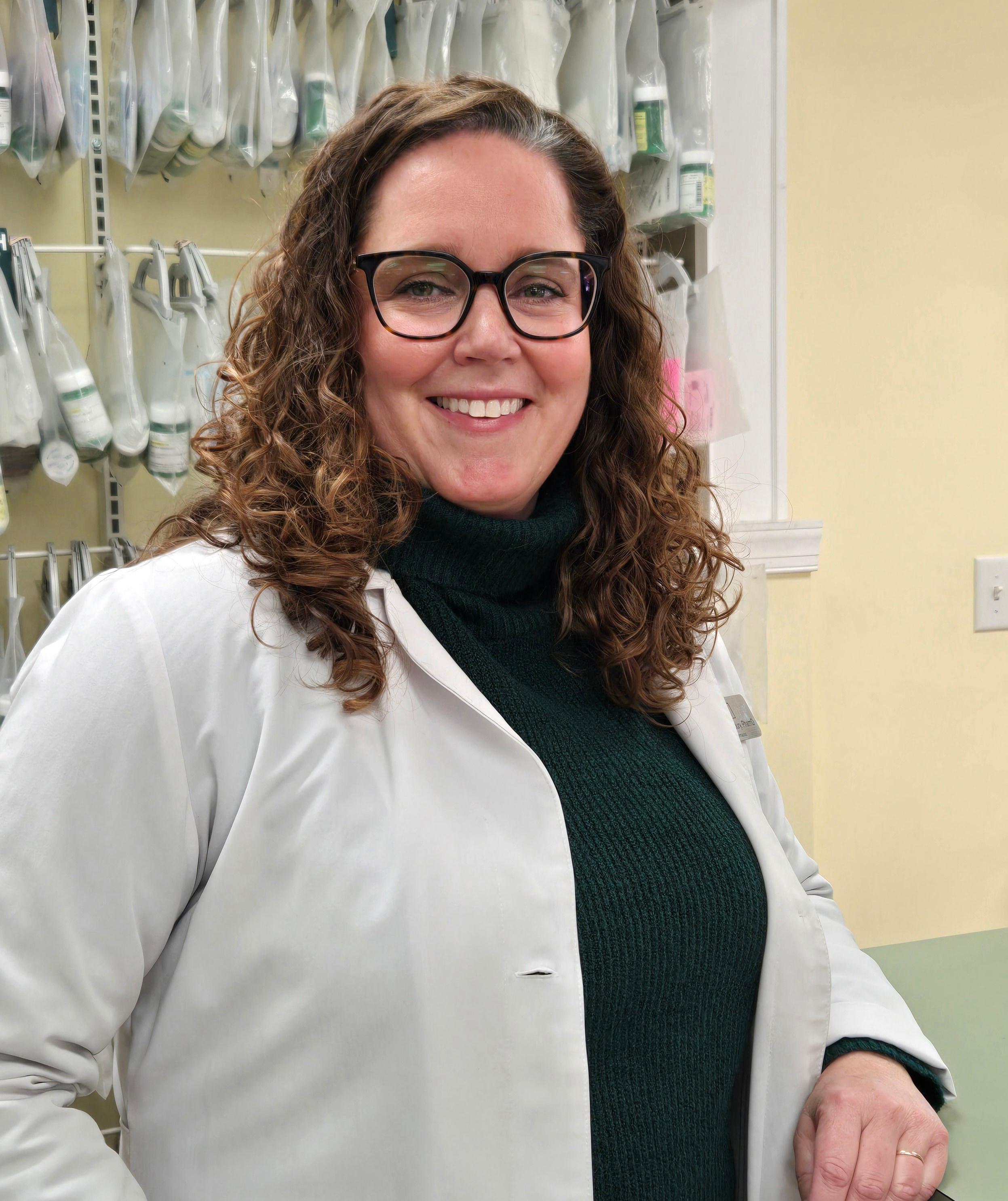

Kyrle Luth is a P3 student at the MUSC College of Pharmacy and currently volunteers with Palmetto Palace.
WHAT’S THE MOST REWARDING PART OF BEING INVOLVED IN THE PHARMACY PROFESSION?
Making a real impact on patients’ lives whether through medication counseling or helping them understand their conditions. Volunteering with Palmetto Palace has been especially meaningful, as many patients are uninsured or have gaps in care. Sitting down one-on-one, I’ve helped bridge the gap between their health goals and how medications or lifestyle changes can support them.
IF YOU COULD HAVE DINNER WITH ANY LEGISLATOR OR POLICYMAKER, WHO WOULD IT BE AND WHY?
Senator James Maroney. His dedication to advancing pharmacy practice in Connecticut, especially through Collaborative Drug Therapy Management, is inspiring. I’d love to hear his insights on the future of pharmacy legislation and how we can advocate for our profession and patients.
WHAT’S ONE FUN FACT ABOUT YOU THAT YOUR COLLEAGUES MIGHT NOT KNOW?
I sing “The Mail Song” from Blue’s Clues every time I check the mail- quite well, actually!
IF YOU WERE NOT INVOLVED IN PHARMACY, WHAT CAREER PATH WOULD YOU HAVE CHOSEN?
I’d love to run a dog sanctuary- giving rescues a second chance and a loving home while advocating for animal welfare.
WHAT’S THE BIGGEST MISCONCEPTION ABOUT PHARMACISTS THAT YOU WISH LEGISLATORS BETTER UNDERSTOOD?
That pharmacists are not just medication dispenserswe are vital healthcare providers who play a key role in patient care, medication management, and public health. Our expertise extends beyond filling prescriptions to improving health outcomes through direct patient counseling, chronic disease management, and collaborative care
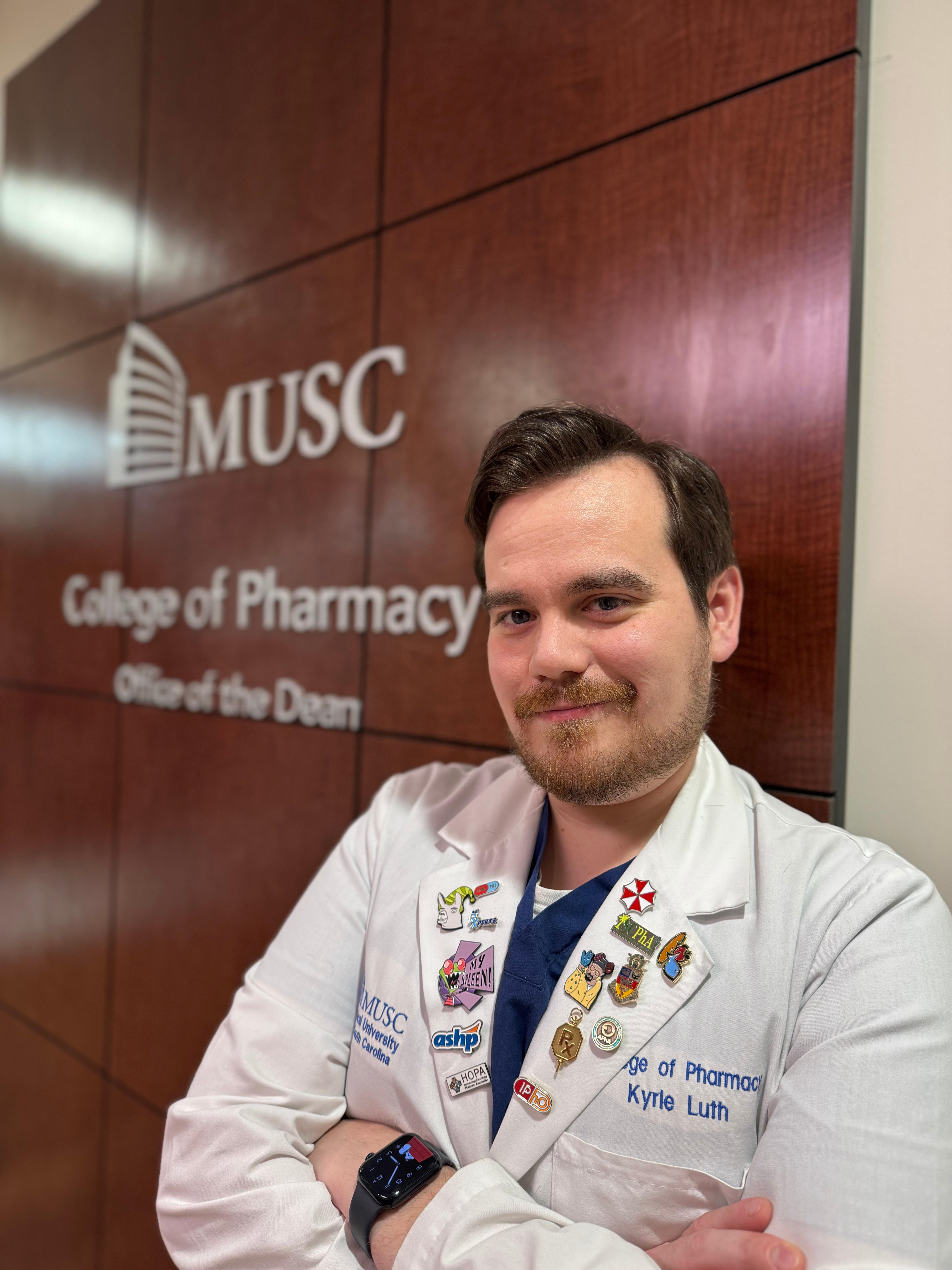
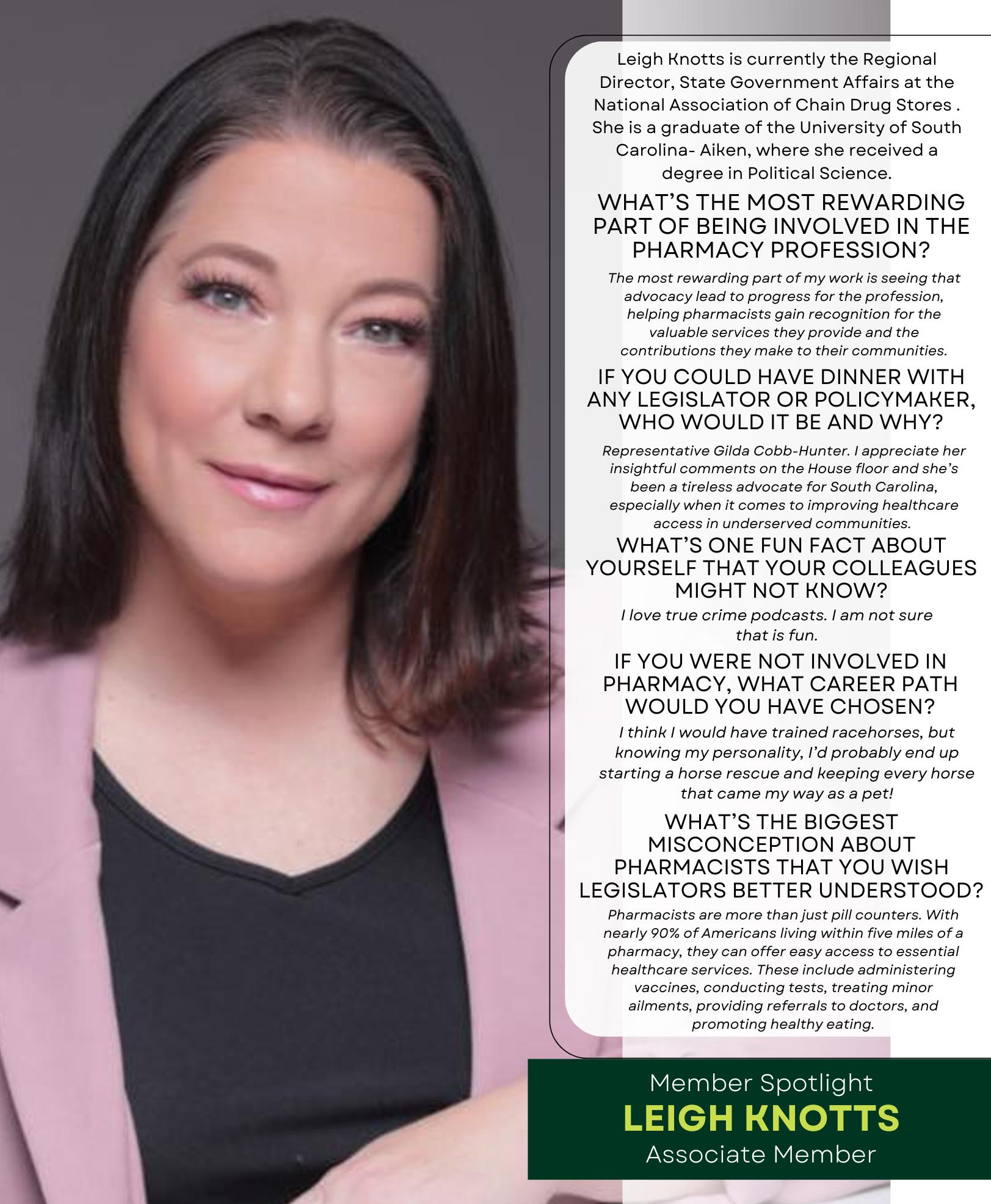


If I had been asked upon entering pharmacy school what advocacy meant to me, or what advocacy meant in the context of pharmacy, I likely would have described the call I felt to care for patients and how pharmacists can advocate for people and their needs, no matter the area of practice. While I still believe that is one interpretation of advocacy, my involvement with the South Carolina Pharmacy Association (SCPhA) over the last four years has revealed an equally impactful meaning.
Growing up, I always knew I would end up in healthcare. My mom worked as a neonatal intensive care unit nurse, exposing me to the medical field at a young age. I watched her care for vulnerable patients with the utmost dedication, advocate for their health, and support their families–all of this while helping to provide for our own family as my dad navigated the hardships of owning a small business. My mom was the epitome of an advocate– whether for me, my family, or her patients. She worked thanklessly and tirelessly, instilling in me a desire to give back in the same way someday.
In college, I worked towards a dual degree in Chemistry and Women’s and Gender Studies. While these areas may seem disparate to some, pharmacy represented the direct intersection of my passions. It allowed me to combine my interest in sciences and healthcare with my passion for advocacy. Inspired by watching my mom as a NICU nurse, I wanted a similarly patient-facing career. Upon graduation, I worked as a pharmacy technician in an independent community pharmacy and quickly learned how accessible pharmacists are to patients, how meaningful their impact can be, and how much they advocate for patients daily. I knew pharmacy was for me, and I eagerly began my journey to become both a pharmacist and a committed advocate at the Medical University of South Carolina (MUSC) College of Pharmacy.
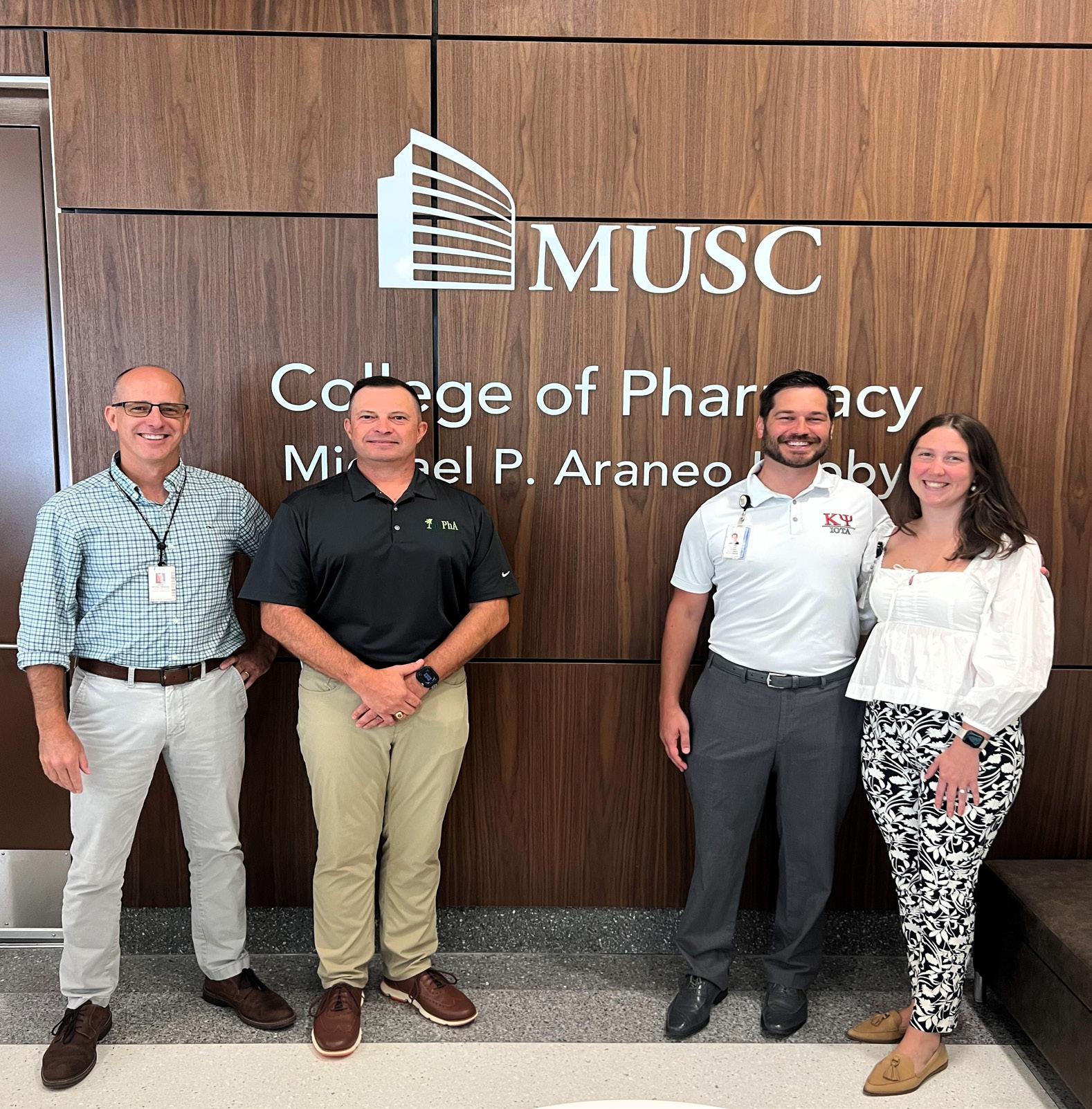
During my first year in pharmacy school, I was selected as a student delegate representing MUSC for the SCPhA House of Delegates (HOD). Though excited, I was unsure what to expect. At my first HOD meeting, I was surprised when asked for my opinion on the Pharmacy Access Act, which would allow pharmacists to dispense oral contraceptives without a prescription in certain scenarios. Prior to its passing, the HOD discussed this topic to update the Association's Policy & Position statement. This meeting offered me a glimpse at another dimension of advocacy: while we advocate for our patients as pharmacy professionals, advocacy also means advocating for the profession itself.
For the next four years, I continued my involvement with SCPhA, eventually serving on the Junior Board of the Board
of Directors. This opportunity offered me firsthand exposure to the legislative issues facing pharmacy throughout the state and allowed me to offer a student’s perspective on these matters. From Pharmacy Benefit Management (PBM) reform, to collaborative practice agreements, SCPhA has a crucial role in shaping legislation. As student pharmacists, it is easy to find legislation and advocacy overwhelming, or feel unqualified to partake in these discussions. However, through my participation in SCPhA, whether board meetings or HOD meetings, I found that student’s voices are not only respected, but also encouraged. As future pharmacists, we represent the future of pharmacy, and legislative decisions made now will directly impact our practice, and thus, our scope of practice. Advocacy for the profession elevates our capacity to advocate for patients.
I encourage all pharmacy students to reframe their understanding of advocacy to include not only how we care for patients, but also how we care for our colleagues and the profession at large. Advocacy efforts as a student may impact your career forever, and our place at the table is both requested and respected, largely due to the support and efforts of SCPhA.




South Carolina Pharmacy Association is accredited by the Accreditation Council for Pharmacy Education as a provider of continuing pharmacy education. Statements of continuing education credit will be distributed to participants who complete the program and submit the online program evaluation. Grievances regarding the education program must be submitted in writing to the SCPhA ACPE Administrator immediately following the program.
Universal Activity Number (UAN): 0171-0000-25-039-H99-P and 0171-0000-25-039-H99-T
Activity Type: Knowledge
Target Audience: Pharmacists and Technicians
Learning Objectives:
1. Define burnout.
2. Review available literature regarding burnout and wellbeing amongst pharmacists and pharmacy technicians in the United States that was published in the last three years.
3. Analyze data for themes pertaining to burnout amongst pharmacists and pharmacy technicians.
4. Develop potential interventions to prevent and treat burnout amongst pharmacists and pharmacy technicians.
5. Suggest potential areas for future study to determine whether interventions are successful in the prevention or treatment of burnout.
Authors: Kirby Cranford, DMSc, PA-C and Kelly Clark, PharmD
Initial Release Date: March 1, 2025
Planned Expiration Date: March 1, 2028
Hours: 1.25 hours
Activity Evaluation and Statement of Credit
A passing score of 70% is required to receive credit, and you are allowed two attempts to pass the quiz. Credit will be automatically processed following the CE once you complete the evaluation through Lecture Panda. Please note the journal article will be posted on this platform. Please contact SCPhA at info@scrx.org for additional questions.
Visit https://lecturepanda.com/r/PharmacyBurnout to register and submit the Home Study Quiz: Please note you will be prompted to create a profile.
Please note: You will be prompted for your NABPE e-profile ID. Pharmacists and Pharmacy Technicians are required to obtain this number; please go to https://nabp.pharmacy/programs/cpe-monitor/ for more information and to register with CPE Monitor.
Following the COVID-19 pandemic, health care professionals, including pharmacists and pharmacy technicians, reported alarming levels of burnout. This article seeks to determine the impact of burnout and the interventions that may be used to lessen levels of burnout amongst pharmacists and pharmacy technicians. A literature review was undertaken to identify the research that is available on the experience of burnout among pharmacists and pharmacy technicians in the United States over the last three years. A total of 21 articles were ultimately retrieved: one systematic review, four narrative reviews/ commentaries, and 16 cross sectional studies utilizing either surveys or focus groups. Data was subdivided into tables for ease of viewing.

Burnout is a term that is likely familiar to many readers. However, growing up in a household with a community pharmacist father and nurse mother, burnout was not a term the author ever heard uttered by her parents growing up. Instead, daily stressors and long hours were just considered to be part of the job. The first instance of burnout documented amongst pharmacists in PubMed dates to 1982, however a dramatic increase in the number of articles published on the topic is observed after 2020 and the COVID-19 pandemic.¹ While not included in the Diagnostic and Statistical Manual of Mental Disorders, Fifth Edition (DSM-5), burnout is included as a condition under the 11th edition of the International Classification of Disease (ICD-11).² There, burnout is defined as feelings of exhaustion, negativity, or ineffectiveness related to one’s occupation. Several scales exist to evaluate the presence and severity of burnout. Two commonly utilized assessment tools are the Maslach Burnout Inventory (MBI) and the well-being index (WBI).³ The MBI, more specifically the Maslach Burnout InventoryHuman Services Survey for Medical Personnel (MBI-HSS-MP) is one of the most used measures to assess burnout in healthcare clinicians. It assesses

individuals in the domains of emotional exhaustion, depersonalization, and low sense of accomplishment. Other metrics commonly used to assess burnout include the Copenhagen Burnout Inventory (CBI) and the Oldenburg Burnout Inventory (OLBI). Meanwhile, the WBI assesses distress in multiple dimensions, not just those of burnout.
Burnout is not unique to pharmacy professionals and has been studied extensively in other healthcare positions as well. This article seeks to identify what literature is available on burnout in pharmacists and pharmacy technicians, to determine if any robust study has been carried out evaluating potential interventions in this area, and to evaluate if collegial working relationships with other health professionals can lessen the overall impact of burnout among pharmacy professionals.

SCPhA invites you or someone you know within your network to participate in enhancing the educational content for the Palmetto Pharmacist! We are currently accepting articles for publication consideration. We accept a diverse scope of articles including but not limited to: original research, medication safety, case reports, reviews, clinical pearls, technology, and opinions.
The Palmetto Pharmacist is a peer-reviewed publication intended to inform, educate, and motivate pharmacists, pharmacy students, and pharmacy technicians in all areas of the profession.
Articles written by students, residents, and new practitioners are welcome. Mentors and preceptors - please consider advising your mentees and students to submit their appropriate written work to SCPhA for publication.
Don't miss this opportunity to share your knowledge and experience with the South Carolina pharmacy community by publishing an article in the Palmetto Pharmacist!
For questions, please contact Sondra Gettys, Manager of Education and Events, at sondra@scrx.org


Protect your license and your practice with confidence!
Pharmacists Mutual has been the trusted partner for pharmacists nationwide since 1909. Our commitment goes beyond providing insurance—we offer peace of mind through unparalleled expertise and a team of specialists who understand your unique needs. With industry-leading customer service and a proven track record, we’re here to help you protect your license, practice, and future.
of pharmacy professional claims reported in 2022 were related to defending pharmacists and pharmacies before a regulatory entity.
$430,375 $1,605,288 $8,821
Compounding pharmacies incur some of the most severe claim losses, with an average loss paid of $430,375 in 2022.
















Candidates using PTCB’s Practice Tools consistently report higher passing rates , giving them the confidence to




Employers and educators can easily support candidates by Get started at ptcb.org using PTCB's direct billing service to purchase vouchers online. ...personal finances?



Need to talk with someone about...
...being a preceptor? ...continuing education?
...life after graduation? ...student loans? ...launching your career? ...negotiating pay or benefits? ...interviewing? ...stress management?






